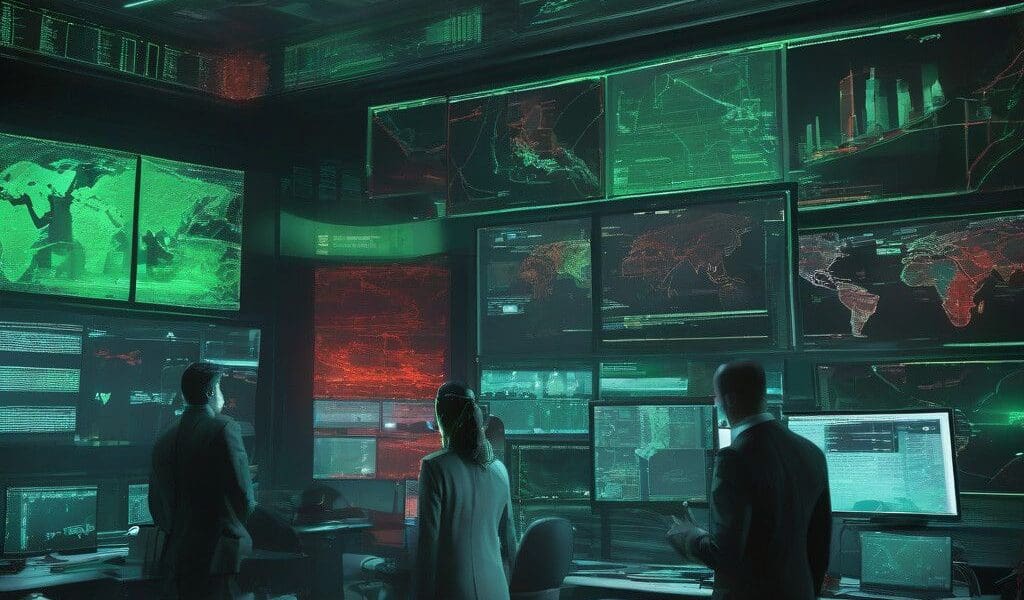Iran-Linked Cyber Threat: Discovery of Backdoors in Middle East Critical Infrastructure
In a revealing report published by Mandiant on September 19, 2024, a sophisticated Iranian cyber unit, designated as UNC1860, has been implicated in establishing backdoors across critical infrastructure in the Middle East. This unit, affiliated with the country’s Ministry of Intelligence and Security (MOIS), has reportedly provided key access to hackers engaging in espionage and cyberattacks, highlighting a significant security risk for nations in the region.
Mandiant’s analysis identifies UNC1860 as a crucial player in facilitating hacking operations, particularly within the telecommunications and governmental sectors. The group’s operations align with escalating tensions in the region, as they have allegedly been involved in high-profile cyberattacks, including the deployment of BABYWIPER malware against Israel and a similar campaign targeting Albania with a different tool known as ROADSWEEP.
The complexities of these operations are underscored by the methods employed by UNC1860. The group utilizes advanced tools and hidden backdoors, which grant them prolonged access to critical systems. Such access allows for espionage operations and lays the groundwork for potentially disruptive cyber activities. Mandiant noted that while direct links between UNC1860 and specific attacks are challenging to confirm, the evidence of their toolkits being leveraged by other Iranian hacking factions suggests a well-organized and collaborative approach to cyber warfare.
Security experts point out that UNC1860 is not operating in isolation. The unit has reportedly worked in tandem with other Iranian-associated groups such as APT34. This collaboration was evident in the targeting of Jordanian, Israeli, and Saudi Arabian government networks, illustrating a pattern of coordinated attacks aimed at destabilizing the region’s infrastructure.
To protect against such threats, it’s essential for businesses and governments in the region to adopt robust cybersecurity measures. This includes implementing multi-layered security protocols that can detect and respond to threats in real-time. The use of threat intelligence platforms can also prove beneficial, offering insights into the tactics and strategies employed by adversaries like UNC1860.
For example, organizations can utilize artificial intelligence-driven security tools that analyze behavior patterns and identify anomalies that deviate from the norm. This proactive approach can significantly enhance an organization’s ability to thwart potential intrusions before they escalate into full-fledged attacks.
Moreover, it is essential for these entities to conduct regular security audits and penetration testing. By simulating real-world attacks, organizations can identify vulnerabilities within their systems that may be exploited by threat actors. Following these tests, organizations should implement the recommended changes promptly to bolster their defenses against potential cyber threats.
Collaboration between sectors can further strengthen defenses against cyber threats. Private companies, government agencies, and international organizations should foster a culture of information sharing. Establishing cybersecurity alliances enables members to access a wider pool of resources and knowledge, which can be crucial in combating sophisticated cyber threats.
Training and awareness programs for staff are equally important. Organizations must ensure that their employees are educated on the latest cybersecurity threats and best practices. Regular training sessions can equip staff with the skills to recognize phishing attempts and other forms of social engineering, which are often the first steps in a cyber attack.
In conclusion, the revelations regarding UNC1860’s activities and the broader implications for Middle Eastern critical infrastructure call for urgent and comprehensive cybersecurity strategies. By understanding the operational techniques of threat actors and implementing robust security measures, organizations can better protect their networks and sensitive data from the ever-present risks posed by cyber adversaries.








